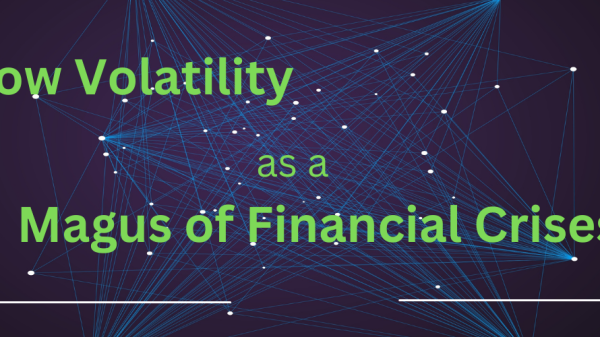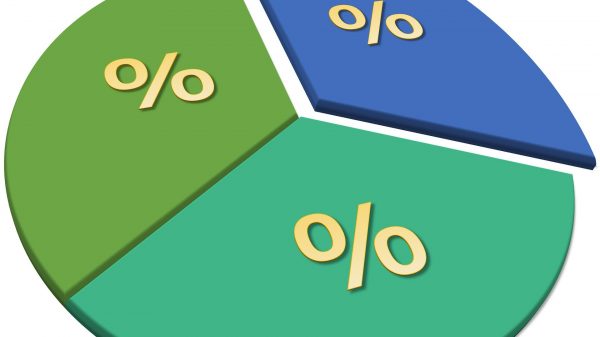By Donald Antoine July 20, 2022
When it comes to financing, technology has always played a major role. From early accounting systems to today’s modern financial apps, technology has always had a hand in shaping how we manage our money. In recent years, this trend has only accelerated, as we’ve seen the rise of new technologies like cryptocurrencies and mobile payments.
Why FinTech Matters
The financial sector (FinTech) is undergoing a major transformation. New technologies have emerged that are changing how we bank, invest, and make payments. This will continue and change the way we conduct our financial activities.
So why does this matter? Well, for one thing, these new technologies are making it easier and more convenient for people to access financial services. They’re also making it easier for businesses to accept payments and manage their finances. In addition, fintech is helping to drive down the costs of banking and investing. And last but not least, fintech is helping to promote financial inclusion by providing access to financial services for people who are underserved by the traditional banking system.
So, there you have it. That’s why fintech matters. It’s changing how we bank and invest, making it more convenient and accessible for everyone.
Here are 9 of the most important FinTech advancements in recent years:
Blockchain
Technological advancements have always been a driver of financial innovation. The advent of the internet led to the development of online banking and e-commerce. And now, blockchain is being touted as the next big thing in financial technology.
So, what is blockchain, and how can it be used in finance? Blockchain is a distributed database that allows for secure, transparent, and tamper-proof transactions. This makes it ideal for use in the financial sector, where trust and security are paramount.
There are many ways that blockchain can be used in finance, from streamlining back-office operations to facilitating cross-border payments. And as the technology continues to develop, we can expect to see even more use cases for blockchain in finance.
AI and Machine Learning
In recent years, artificial intelligence (AI) and machine learning have become increasingly popular topics in the FinTech sector. These technologies have the potential to revolutionize the way we do business and manage our finances.
AI and machine learning can improve financial decision-making, automate processes, and detect and prevent fraud. They can also help us better understand and predict customer behavior. In the future, AI and machine learning may help to develop new financial products and services.
For now, AI and machine learning are still in the early stages of development in the FinTech sector. But as these technologies continue to evolve, they are likely to have a profound impact on how we do business in the financial world.
API Banking
API banking is a new advancement in the world of financial technology. This type of banking allows developers to access banking services through an application programming interface (API). This allows for a more streamlined and efficient way of handling banking transactions.
API banking has many benefits for both consumers and businesses. For consumers, it provides a more convenient way to manage their finances. For businesses, it can help to streamline processes and reduce costs.
Although API banking is still in its early stages, it shows great promise as a way to improve the banking experience for both consumers and businesses.
PSD2
The Second Payment Services Directive (PSD2) is one of the most critical pieces of legislation to come out of the European Union in recent years. PSD2 is a directive that sets out new rules and regulations for payment service providers in the EU. It is designed to make payments more secure and to protect consumers from fraud.
PSD2 is an essential advancement in FinTech, as it creates a level playing field for all payment service providers, regardless of size or location. This will allow small startups to compete with larger companies in the payments space. In addition, PSD2 requires banks to provide access to their customer’s account data to third-party providers, which will lead to more innovation in the FinTech space.
The implementation of PSD2 is an important step forward for payments in the EU, and it will positively impact the FinTech industry as a whole.
The Internet of Things (IoT)
The Internet of Things (IoT) is one of the most talked about technological advancements in recent years. And with good reason – the potential applications of IoT are seemingly endless. But many people don’t realize that IoT also has the potential to revolutionize the financial sector.
IoT can track spending, enable mobile payments, and even help prevent fraud. And that’s just the beginning. As IoT technology continues to develop, we can expect to see even more impressive applications of it in the world of finance. So, if you’re working in the financial sector, you need to keep an eye on the IoT. It’s sure to change how we do business in the coming years.
Cloud technology
Cloud technology has been a significant advancement in the FinTech industry in recent years. Thanks to the cloud, businesses have been able to reduce costs and improve efficiency. In addition, the cloud has also made it possible for companies to share data and applications with employees and customers.
The cloud has also been a significant game changer for the financial sector. With the help of cloud-based applications, financial institutions have been able to offer their customers a more personalized experience. In addition, the cloud has also made it possible for financial institutions to provide new and innovative services to their customers.
Big data and analytics
Using big data and analytics is one of the most critical advancements in the financial technology industry. By analyzing large data sets, financial institutions can make more informed decisions about lending, investment, and risk management.
This technology also helps to detect and prevent fraud. By analyzing patterns in data, financial institutions can identify suspicious activity and take steps to avoid it.
Overall, using big data and analytics has positively impacted the financial industry. It has helped to make it more efficient and effective and has also helped to protect consumers from fraud.
Cybersecurity
FinTech companies handle a large amount of sensitive data, making them a prime target for cyberattacks. As such, cybersecurity is a top priority for FinTech companies. The rapid growth of FinTech has dramatically increased the need for robust cybersecurity measures.
There are many cybersecurity measures that FinTech companies can take to protect their data. These measures include encrypting data, implementing two-factor authentication, and using biometrics. By taking these measures, FinTech companies can help to ensure that their data is safe from cyberattacks.
The rise of mobile commerce
The rise of mobile commerce is one of the most crucial FinTech advancements in recent years. Mobile commerce has revolutionized how businesses operate and make it easier for consumers to purchase goods and services. This technology has made it possible for businesses to conduct transactions anywhere, anytime.
This technology is still in its early stages, but it has already had a significant impact on the financial world. Mobile commerce is likely to continue to grow in popularity in the years to come, and it will likely have a significant impact on how businesses operate.
To wrap things up
The FinTech sector is having a moment. A confluence of factors – from the rise of mobile and digital banking to the need for enhanced security and regulatory compliance – is driving






